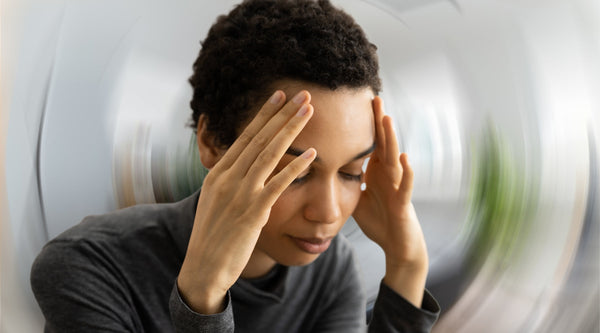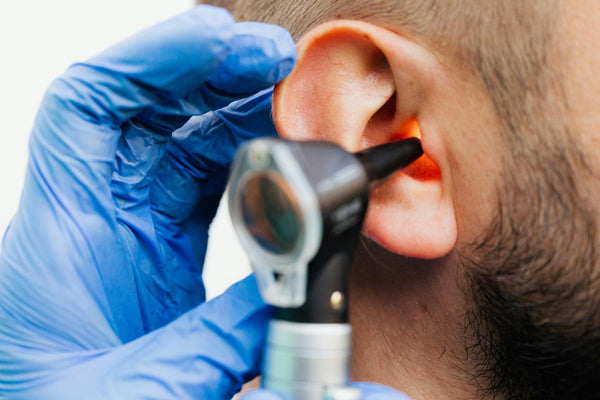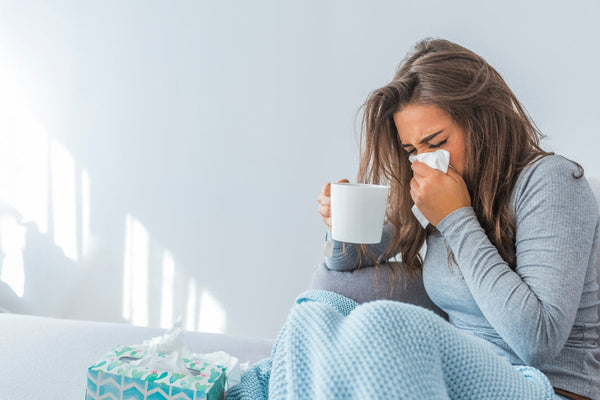
Most people experience their ears popping from time to time, especially during flights, driving in the mountains, or when they have a cold. It’s a normal reaction to changes in air pressure - but if the sensation happens often, lasts for days, or comes with discomfort, it could point to an underlying issue that needs attention.
At Leightons, our hearing care specialists can help identify the cause of persistent ear popping and provide safe, effective solutions for lasting relief.
What is ear popping?
Ear popping describes the clicking, crackling, or popping sounds you sometimes hear inside your ear. This happens when the Eustachian tubes - tiny passages that connect the middle ear to the back of your throat - open and close to balance air pressure.
When the tubes work as they should, pressure equalises naturally and your ears feel clear. But if they become blocked or inflamed, you might experience popping, pressure, or muffled hearing.
Why do ears pop?
The middle ear needs to maintain equal pressure on both sides of your eardrum. The Eustachian tubes handle that job, opening whenever you swallow, yawn, or chew. When pressure builds up - for example, during altitude changes - you may feel a “pop” as the tubes open to release trapped air.
Persistent popping, however, could signal a problem with how these tubes are functioning.
Common causes of ear popping
Ear popping can be triggered by several everyday situations and ear conditions:
- Altitude or pressure changes: Common during flying, scuba diving, or driving in the mountains.
- Colds and sinus infections: Congestion can block the Eustachian tubes, trapping air in the middle ear.
- Ear wax build-up: Excess wax can affect how pressure equalises, leading to a blocked or popping sensation.
- Allergies: Inflammation from allergies may cause the tubes to swell.
- Eustachian tube dysfunction: The tubes fail to open properly, causing pressure imbalance.
- Fluid in the ear: Known as glue ear, this can cause popping and muffled hearing.
When ear popping becomes a problem
Occasional popping is normal and usually nothing to worry about. But if it’s frequent, painful, or accompanied by other symptoms, it’s a good idea to get your ears checked.
You should seek professional advice if you experience:
- Ongoing or painful ear popping
- A feeling of fullness or blockage
- Muffled hearing or changes in sound
- Dizziness or ringing in the ears
- Ear pain or fluid discharge
Leightons’ audiologists can identify the cause through a safe, detailed ear examination.
How to relieve ear popping
If your ears feel blocked or keep popping, try these gentle methods:
- Swallow or yawn: Helps open the Eustachian tubes and balance pressure.
- Sip water or chew gum: Encourages tube movement.
- Use a nasal spray: Reduces swelling in the nasal passages if congestion is the cause.
- Avoid inserting objects: Don’t use cotton buds, as they can push wax deeper.
- Apply gentle warmth: A warm compress may ease discomfort.
If popping persists for more than a few days, it’s best to have your ears examined professionally.
When to see an audiologist or GP
If your ears won’t “clear” or popping is constant, there may be an underlying issue such as infection, fluid, or wax blockage. Leightons’ hearing care specialists can:
- Examine your ears safely using advanced equipment
- Remove excess ear wax through microsuction
- Recommend treatment for congestion or infection
- Carry out a free hearing test to assess any related hearing loss
How Leightons can help
Persistent ear popping can often be resolved with the right care. Our audiologists will assess your ear health and hearing to pinpoint the cause - whether it’s wax build-up, pressure imbalance, or infection - and guide you on the safest, most effective treatment options.
At Leightons, we focus on long-term ear and hearing health, so you can enjoy clear, comfortable hearing every day.
Preventing ear popping
A few simple habits can help reduce ear popping:
- Keep sinuses clear during colds or allergies
- Avoid flying with a blocked nose
- Yawn or swallow during take-off and landing
- Stay hydrated when travelling
- Schedule regular ear health checks if you’re prone to congestion or wax build-up







